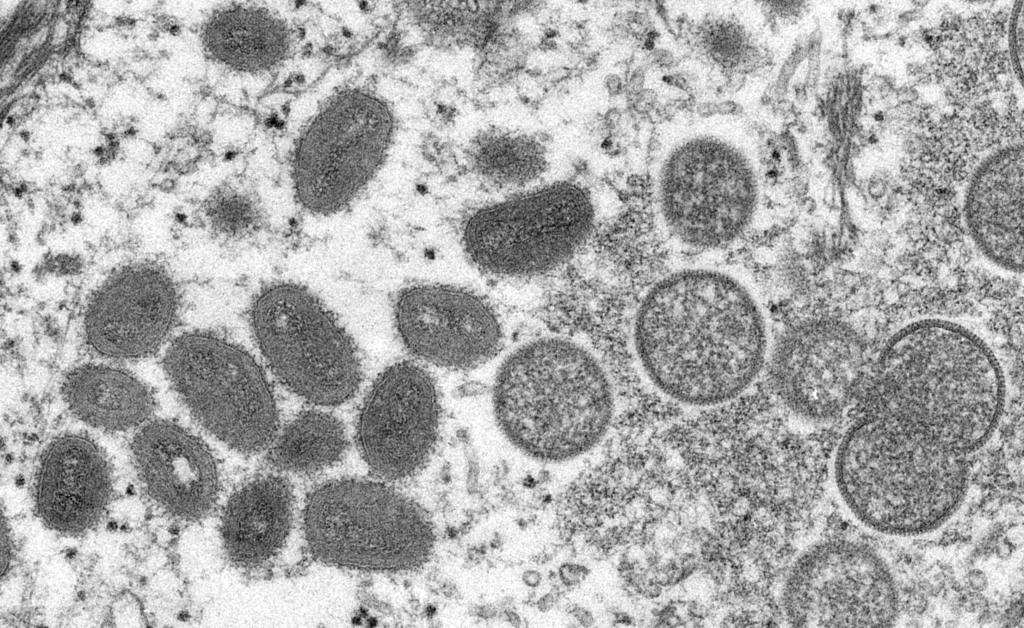
ATLANTA – Nearly 600 cases of monkeypox have been identified in Georgia since the disease first showed up in the Peach State at the beginning of June, according to the federal Centers for Disease Control and Prevention (CDC).
The disease has spread across the country to the point that the Biden administration declared monkeypox a national public health emergency last week.
Monkeypox is a viral disease that causes the skin to break out into painful lesions and is also accompanied by other symptoms such as fever, exhaustion, and muscle aches.
Since the first cases were reported in the United States a few months ago, scientific understanding of how it spreads has evolved.
“The monkeypox virus can spread from person to person through direct contact with the infectious rash, scabs, or body fluids,” said Nancy Nydam, spokeswoman for the state Department of Public Health (DPH). “It also can be spread by respiratory secretions during prolonged, face-to-face contact, or during intimate physical contact, such as kissing, cuddling, or sex.”
“Touching items (such as clothing or linens) that previously touched the infectious rash or body fluids is another way monkeypox spreads but has not been identified to be a common mode of transmission in this outbreak or for monkeypox in general,” Nydam added.
According to the CDC, 7,510 cases of monkeypox have been reported in the United States.
Most of the Georgia cases are concentrated in metro Atlanta.
The Jynneos vaccine can help prevent monkeypox. The vaccination requires two doses 28 days apart.
The U.S. Department of Health and Human Services (HHS) has allocated 1.1 million doses of the vaccine to send to states. Around 600,000 have been shipped already, according to the agency.
Georgia has been allocated about 50,000, according to the HHS.
Not all of the doses have yet reached the state due to federal rules about vaccine distribution and transit times, Nydam said.
So far, almost all of the cases in the United States have been identified in men who have sex with men, according to a CDC briefing last month.
DPH has distributed the vaccines across Georgia, including to county health departments and community organizations, Nydam said.
Jeff Graham, executive director of the LGBTQ advocacy group Georgia Equality, praised the outreach work being done by county health departments and community groups. But he said those efforts won’t be truly effective without more resources and better coordination from the DPH.
“The state must show more leadership on a coordinated approach to ensuring that vaccine distribution is equitable around the state, and they need to provide better data concerning folks contracting monkeypox and those receiving the vaccine,” Graham said. “Also, adequate funding for the community outreach of whatever the state’s plan is will be a critical component of an adequate response.”
Advocates warn that though the disease is concentrated so far among gay men, it’s important that the larger community pay attention because the disease affects everyone.
“We can’t stigmatize disease,” said Dafina Ward, executive director of the Southern AIDS Coalition. “What we can’t do is recreate the misinformation and shaming that so many experienced early on in the HIV/AIDS epidemic.”
Ward said that though monkeypox can be spread by sexual contact, it is not solely a sexually transmitted disease.
For that reason, everyone should be concerned, Ward said.
“Monkeypox does not care about a person’s sexual orientation or gender identity,” she said. “Every community needs access to testing, vaccine, and treatment.”
This story is available through a news partnership with Capitol Beat News Service, a project of the Georgia Press Educational Foundation.
